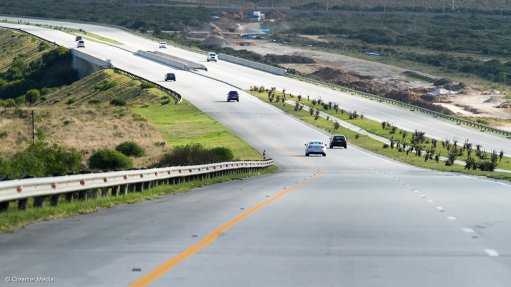
Photo by: Duane Daws
The Competition Commission has prohibited an intermediate merger where construction products supplier Much Asphalt intends acquiring five fixed asphalt plants from Roadspan Surfaces, stating that the merger is likely to prevent or lessen competition in the markets for the supply of asphalt products.
Much Asphalt manufactures and supplies hot and cold mix asphalt products to the commercial sector. It also supplies asphalt products for use or application on urban streets, freeways, runways, race tracks, public sidewalks, bus lanes and certain harbour-specific applications.
Much Asphalt is only active in the manufacture of asphalt and does not offer services such as laying the product onto the selected surface. The fixed Roadspan plants, located in Kimberley, Stilfontein, Welkom, Nelspruit and Durban, produce hot and limited cold mix asphalt.
The commission found that the merged entity would hold a dominant position in each of the affected markets as a result of the proposed merger and would not face strong competition in these markets.
It further stated that the merger would create difficulty for new firms to enter and compete effectively in the affected markets owing to capital, regulatory and economies of scale requirements.
Further, customers of the merging parties do not have the ability to negotiate for lowers prices as there are few alternative suppliers of asphalt products. Thus, the merged entity is unlikely to be constrained by customers and may increase prices post-merger.
“Given the structure of the affected markets, the proposed merger is likely to enhance the merging parties’ ability to engage in collusive conduct with their competitors,” the commission added.
The merging parties did not propose any remedies to address the commission’s concerns nor have they advanced any cogent efficiencies, procompetitive gains or public interest benefits that could outweigh the competition concerns, the commission said.
“Asphalt is one of the critical input products in infrastructure development projects, particularly road construction. The merger would have created a market structure in the supply of asphalt that is highly concentrated, leaving the merged entity the dominant supplier in key geographic locations in South Africa.
“Ultimately, customers of asphalt in road construction would have had to bear the high prices that would likely result from the lessening of competition had the merger been approved,” said acting deputy commissioner Hardin Ratshisusu.